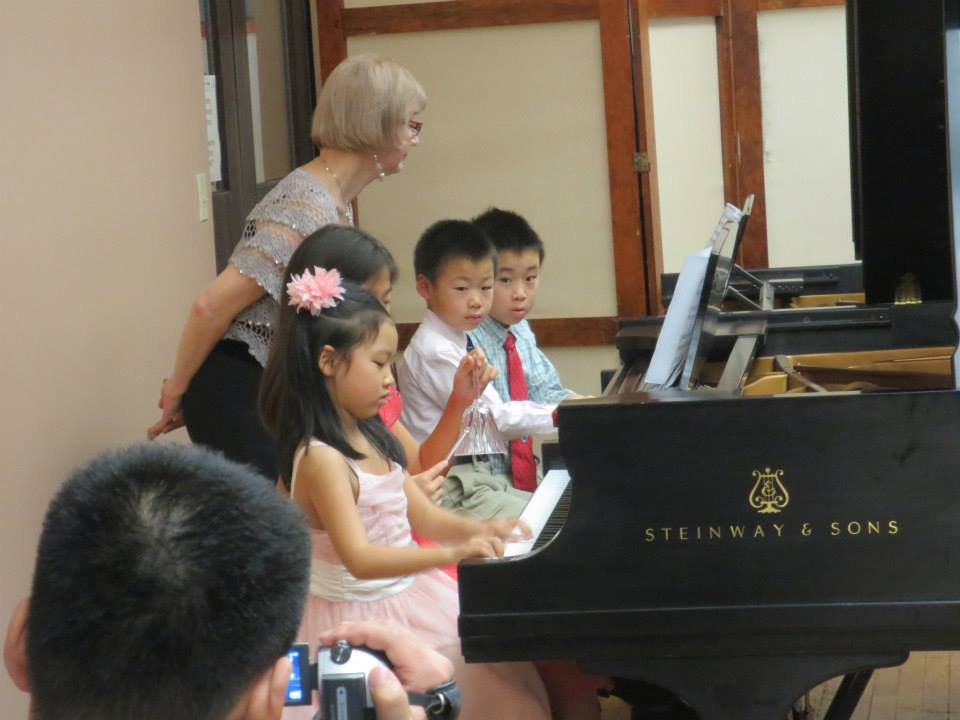Summer Reflections

For a teacher summer is a time to assess and reflect, read “smar tbooks” and socialize with and learn from fellow teachers. I would like to share with you some of my summer reflections.
This summer, two books made a big impression on me, and I highly recommend them to you. The first book is “Outliers” by best-selling author Malcolm Gladwell and the second is “Microtrends” by Mark J. Penn. “Outliers” has a sub-title – The Story of Success, and it researches the reasons and circumstances of the successful people. Though the subjects of both books are very far from music, they both dedicate many pages to it. If you think about it, it is no wonder that they do this. Music is a reflection of life and whatever applies to life applies to music as well.
Based on his research and the research of others, Gladwell states the “10,000 hours rule” – the excellence at performing a complex task (whether it is programming, chess playing or music) requires a critical minimum level of practice – 10,000 hours. Bill Gates – the founder of Microsoft, Bill Joy – the founder of Sun Microsystems, famous chess grandmasters, and Beatles - all had their 10,000 hours of grueling drills before they succeeded. Research shows that what separates elite music performers from just good musicians is an amount of practice. To give you a point of reference: elite performers practice 2-3 hours a week at age 5-6, six hours a week by age nine, eight hours a week by age twelve, sixteen hours a week by age fourteen, and up and up until by age twenty they are practicing 30 hours a week. What separates elite performers from just very good musicians? 2000 hours of practice by age 20. The striking thing is that research could not find any “naturals”, musicians who floated effortlessly to the top while practicing less than their peers did.
Should these staggering numbers discourage anyone from studying music if they don’t intend to become professional musicians? Not at all! Elite swimmer Michael Phelps spends 8 hours a day in a pool, but everyone needs to learn how to swim at least 100 yards. The main point here is that there is a critical amount of effort to achieve meaningful results. Everyone has to put in enough effort to reach a point where one becomes proficient enough to enjoy music to its fullest. It is like climbing a mountain – you need to get above a forest line to enjoy a view. And the higher you get, the more spectacular the view becomes! That’s why we have so many students who have studied music from pre-K to the end of high school and keep playing music in college and all their lives.
Everyone can do it – can get above the forest line. In my 35 years of teaching, I’ve seen it many times. People usually emphasize well-known tangible benefits of music education – improved mental abilities, memory, and coordination; learning how to focus and persevere; having an emotional outlet. Gladwell writes about KIPP Academy of Bronx, New York, one of the best schools in the country with an innovative educational approach, where learning an instrument and playing in an orchestra is mandatory for all students.
But intangible benefits (a spectacular view of music) are much more appealing. Even the process of learning is fascinating. Each new piece presents itself as an emotional and intellectual puzzle that is so much fun to solve.
“Microtrends” contains interesting statistics about the growing popularity of classical music. Tickets sales, number of performances, and private philanthropy is at record levels. According to Gallup surveys, the portion of US households with a member who plays a musical instrument reached 54 percent, and the fastest growing group is 22-55-year-old. Classical music is an acquired taste. You can’t appreciate baseball if you don’t know the rules and play yourself. You can’t fully appreciate music if you don’t play an instrument.
In “Outliers,” Gladwell also points out that the children who keep studying and learning over the summer gradually accumulate more knowledge and more proficiency than the children who don’t and, thus, have a significant advantage later in life. According to research, the “summer doing-nothing” actually impedes the child’s progress, and there is no known advantage of having two months of vacation. The countries and social groups that have longer school years always score higher in every subject compared to the average US schoolchild. I’ve noticed this myself – the children who keep studying music over the summer make clearly more significant progress over the years.
Of course, I look at everything from the position of a music teacher, who wants to pass her love of music to every student of our Academy. And a characteristic of a good book is the fact that everyone can find something appealing and interesting.
